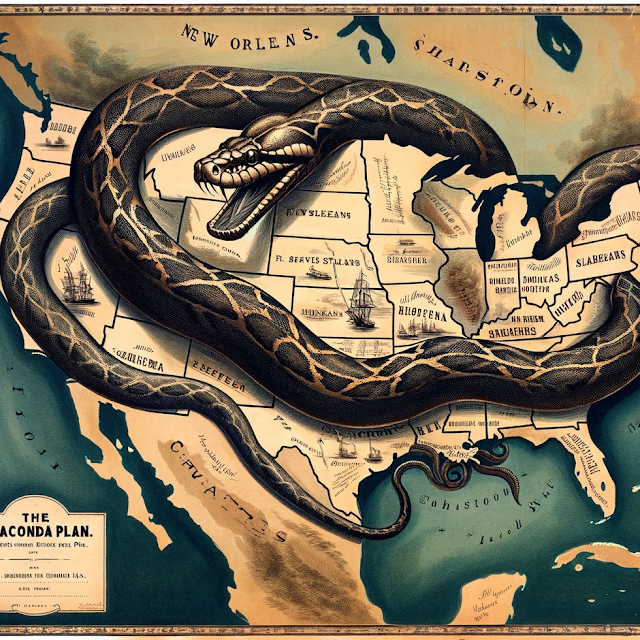What is the Anaconda Strategy?
Historically, the Anaconda Plan was proposed by Union General Winfield Scott during the American Civil War. The strategy aimed to suffocate the Confederate states economically and militarily by blockading their ports and cutting off supplies, much like an anaconda coils around its prey, slowly squeezing the life out of it.
China’s modern-day adaptation of this strategy focuses on Taiwan. By leveraging a combination of military, psychological, and cyber tactics, China appears to be positioning itself to gradually strangle Taiwan’s defenses. This approach, according to Taiwan’s Navy Commander Admiral Tang, is aimed at encircling the island and wearing down its military readiness over time.
Increasing Military Pressure: Sea and Air Encirclement
One of the main pillars of China’s Anaconda Strategy is its persistent military presence around Taiwan. Since the beginning of 2024, the number of Chinese ships patrolling near Taiwan has almost doubled, from 142 in January to 282 by August. Air incursions have also escalated significantly, with incursions rising from 36 to 193 during the same period.
The goal of these maneuvers is clear: China seeks to exhaust Taiwan’s Navy and Air Force by forcing them into constant high alert. Taiwan is facing the challenge of responding to these provocations without escalating tensions to the point of direct conflict.
Psychological Warfare: Undermining Taiwan’s Stability
China’s Anaconda Strategy goes beyond mere military posturing. A significant part of this approach involves psychological tactics aimed at instilling fear and uncertainty within Taiwan. Constant military incursions serve not only to strain Taiwan’s defenses but also to sow doubt and anxiety among its people and leadership, potentially weakening their resolve over time.
This psychological pressure may be intended to force Taiwan into making missteps that China could exploit as a justification for further aggressive actions. The long-term goal seems to be submission through attrition, without the need for a direct military confrontation.
Cyber Warfare: Targeting Taiwan’s Infrastructure
China is also reportedly engaging in cyber warfare as part of its broader strategy. By disrupting Taiwan’s infrastructure through targeted cyberattacks, China seeks to create chaos and instability within the island nation. These attacks, which may go unnoticed by the general public, aim to destabilize Taiwan from within, weakening its ability to function as a unified and stable state.
Prelude to a Bigger Conflict?
While China’s Anaconda Strategy currently revolves around gradual and indirect pressure, many analysts believe this could be the prelude to a more violent showdown in the future. The constant military presence and cyber-attacks might eventually give way to an economic blockade or even direct military aggression if China feels it can achieve its objectives without facing significant international backlash.
For now, Taiwan is focusing on restraint, avoiding any actions that could provide China with a pretext for escalation. However, with tensions rising and China’s strategy continuing to evolve, the future remains uncertain for the island nation.
Conclusion
China’s “Anaconda Strategy” against Taiwan is a calculated and patient approach, designed to exhaust and weaken the island’s defenses over time. Through increased military encirclement, psychological pressure, and cyber warfare, China is tightening its grip, with the goal of forcing Taiwan into submission without a full-scale conflict. Whether this leads to a peaceful resolution or a more violent confrontation in the future remains to be seen, but Taiwan is now in a constant state of alert, preparing for whatever comes next.





